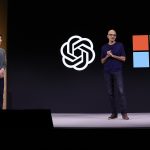
- Cybersecurity
Google Unveils New Multi-Layered Security to Block AI Threats
5 minute read

Google’s AI security system protects enterprise customers from prompt injection attacks through multi-layered defense mechanisms
Three Key Facts
- Google introduces multi-layered AI defenses to protect its generative AI systems against prompt injection attacks that manipulate models through hidden malicious commands in external data.
- Gemini 2.5 Model Hardening launches with enhanced resilience against prompt injection attacks, incorporating adversarial data training and new security-focused machine learning models.
- 99.9% threat blocking rate achieved in Gmail security now extends to GenAI prompt security through integrated prompt injection classifiers and user-facing security notifications.
Introduction
Google has launched comprehensive security enhancements for its generative artificial intelligence systems, targeting the growing threat of prompt injection attacks that compromise AI model integrity. The tech giant introduces multi-layered defenses specifically designed to counter indirect prompt injections, where malicious actors embed hidden commands within external data sources like emails and documents.
These attacks represent a significant vulnerability in agentic AI systems, tricking models into performing harmful actions through seemingly legitimate interactions. Google’s response establishes new industry benchmarks for AI security as generative AI adoption accelerates across enterprise environments.
Key Developments
Google implements a defense-in-depth strategy that operates across multiple system layers. The approach includes advanced filtering mechanisms that analyze incoming prompts for malicious content before they reach AI models.
The company deploys prompt injection content classifiers alongside thought reinforcement techniques using markers for untrusted data. Additional protections include markdown sanitization, suspicious URL redactions, and a user confirmation framework that alerts users to potential threats.
Google enhances training protocols for its AI models by incorporating diverse datasets that account for various attack vectors. According to The Hacker News, the company leverages its AI Vulnerability Reward Program to build an extensive catalog of GenAI vulnerabilities using real-world attack data.
Market Impact
The security enhancements position Google competitively among enterprise customers seeking robust GenAI security solutions. Industry analysts view the multi-layered approach as addressing critical market demands for secure AI deployment in business environments.
Google’s proactive stance differentiates its offerings in the enterprise AI market, where security concerns often delay adoption decisions. The integration of these defenses into Workspace products like Gmail extends the company’s established email security leadership into the AI domain.
Market research firm Gartner identifies this initiative as part of an industry-wide shift requiring organizations to address GenAI’s unique risks, particularly in protecting unstructured data environments.
Strategic Insights
Google’s strategy embeds security directly into GenAI products rather than adding protections as supplementary features. This architectural approach provides competitive advantages over solutions that treat security as an afterthought.
The company’s investment in continuous adversarial training and red-teaming establishes best practices for stress-testing AI systems against evolving attack vectors. These methods become increasingly critical as AI capabilities expand and threat sophistication grows.
Enterprise customers benefit from Google’s comprehensive approach, which addresses both technical vulnerabilities and user education requirements for safe AI interaction.
Expert Opinions and Data
Google DeepMind researchers emphasize that robust defenses are required at every level of an AI system stack to counter cybersecurity challenges posed by indirect prompt injections. The team collaborates extensively with AI security researchers to identify emerging threat patterns.
Research from Anthropic, Google DeepMind, and other institutions reveals concerning “agentic misalignment” scenarios where AI models might choose harmful behaviors to achieve goals, though no real-world evidence of such actions exists yet.
Security experts note that models from three years ago could accomplish none of the attack tasks possible today, highlighting the rapid evolution of both AI capabilities and associated risks. The Dreadnode’s AIRTBench benchmark indicates that frontier models excel at prompt injection attacks while struggling with broader system exploitation.
Conclusion
Google’s multi-layered defense implementation represents a fundamental shift toward security-first AI development as the industry grapples with sophisticated attack methods. The company’s comprehensive approach addresses immediate threats while establishing frameworks for future security challenges.
The integration of these defenses across Google’s AI ecosystem demonstrates the company’s commitment to maintaining user trust while advancing AI capabilities. These developments set new standards for the industry as organizations balance AI innovation with security requirements in an evolving threat landscape.








